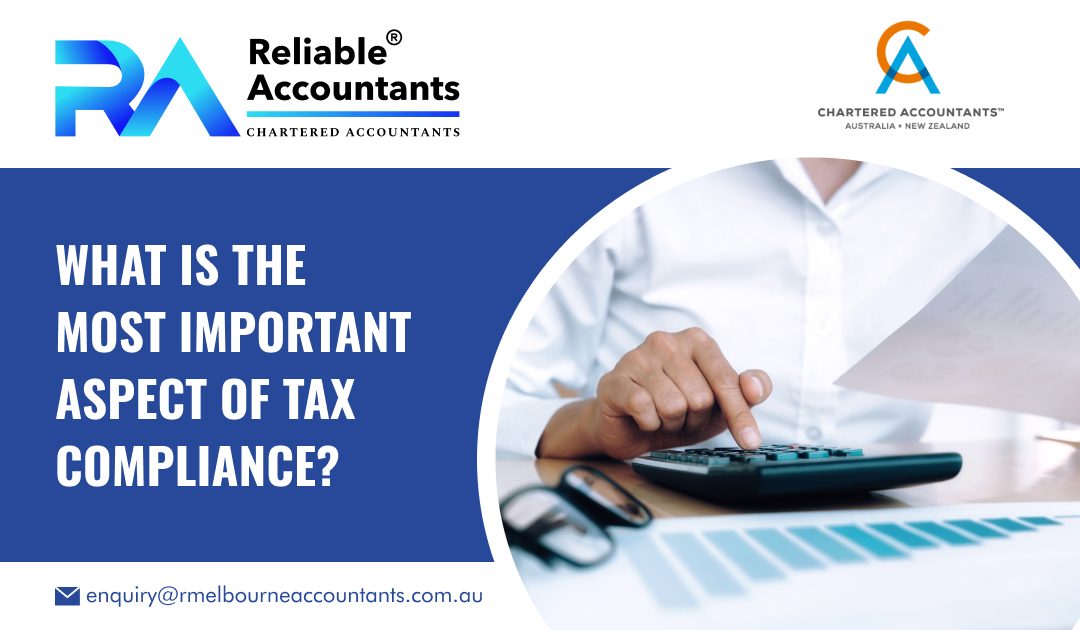Running a business comes with its own challenges, and one of the most critical aspects, especially for new businesses, is staying compliant with company tax laws under the Australian tax system.
There’s no value in making an effort to grow your business if you risk fines or penalties for not meeting tax obligations. To avoid paying unnecessary fines due to failure to meet tax regulations for your Melbourne business, you can seek help from small business accountants in Melbourne. To help you understand and manage your tax responsibilities, this blog post outlines the key requirements for company tax compliance in Australia and offers straightforward tax planning steps to help you stay on track.
What are the primary aspects of tax compliance?
Here are the most important aspects of tax compliance:
Accurate record-keeping to stay compliant
Accurate record-keeping is essential for maintaining tax compliance. Australian businesses must maintain detailed financial records that show all income, expenses, and transactions. With accurate record-keeping, businesses can report income, claim potential tax deductions, and provide proof during an audit. For accurate record-keeping for your Melbourne business, you can also get help from trusted bookkeepers in Melbourne. Without clear record-keeping, your business risks making mistakes during tax lodgment, which can result in fines from the ATO.
Timely BAS & tax lodgment
Meeting deadline is crucial for staying compliant. The ATO sets strict deadlines for tax lodgments, such as annual tax returns and business activity statement. Missing these deadlines can lead to pealties and interest on unpaid taxes. Using a reliable system for monitoring and meeting tax deadlines ensures that your business is compliant and avoids penalties.
- Financial disclosure to the ATO
It is crucial to maintain transparency in financial disclosure. Businesses in Australia provide accurate and complete financial information to the ATO, including:
- reporting income sources
- claiming potential deductions
- calculating taxable income
If you fail to disclose the right information can lead to severe penalties.
What are your tax obligations?
If you are running a business, you need to meet certain tax obligations. We’ll discuss some of them:
Business Tax Registration
Every business running in Australia must be registered with the Australian Business Register (ABR). This includes obtaining an Australian Business Number (ABN), a unique identifier used by the Australian Taxation Office (ATO) to track your business activity.
Alongside your ABN, you’ll also have to register for a Tax File Number (TFN). In most cases, business owners can apply for their TFN during the ABR registration process.
- Goods and Services Tax (GST)
Goods and Services Tax applies to most goods and services in Australia. You need to register for GST and pay a flat rate of 10% on sales of goods and services.
- PAYG Withholding
PAYG withholding is a tax collected by employers from their employees’s wages and paid to the ATO. If your business has employees, you need to register for PAYG. The portion or percentage of tax costs withheld from each employee’s wage depend on their personal tax information.
Payroll tax
Another tax that your company must pay is payroll tax. Payroll tax is imposed on the total amount of wages the business is likely to pay each month. Payroll tax is a territory and state-levied tax. Payroll tax requirements for each state or territory will differ.
What other taxes your company may need to pay?
Apart from GST, PAYG withholding and payroll tax, here are several other taxes that your company need to pay:
- As a business owner, you may be liable to pay FBT if you offer certain benefits to your employees.
- You may be able to claim fuel tax credits for the tax imposed on the fuel you use for several business activities.
- Luxury Car Tax (LCT) is a tax imposed on cars with a total value exceeding the threshold set by the ATO.
Conclusion
As a business owner, you must be aware of potential taxes imposed by the ATO and stay compliant to avoid unnecessary penalties or fines. If you find managing tax matters difficult, you can reach out to Reliable Melbourne Accountants.

